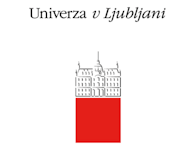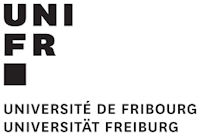IACL
2d/2024 International Association of Constitutional Law Research Group "Constitutionalism and Societal Pluralism: Diversity Governance Compared"
- Deutsch
- English
- Italiano
- Project duration: -
- Project status: ongoing
- Funding: Internal funding EURAC (Project)
- Website: https://www.eurac.edu/en/institutes-centers/institute-for-comparative-federalism/pages/diversity-governance-papers-digop
- Institute: Institute for Comparative Federalism
Most common approaches to studies of federalism and minority rights have contributed little in terms of viable constitutional answers to the increasingly relevant challenge of accommodating societal and territorial pluralism. This holds true, in particular, if a combination of both addressing claims for recognition and creating an effective system of governance is taken as a required standard. The research group brings together scholars exploring the role of constitutions against this backdrop in managing societal and territorial pluralism. The group studies topics such as federalism, minority rights, language policies, human rights and instruments of democratic participation with a threefold aim: first, to revisit the conceptual framework of diversity governance; secondly, to explore how societal pluralism is regulated in diverse policy fields; thirdly, to link different approaches to diversity governance across continents and academic traditions.
The group brings together scholars exploring the role of constitutions in managing societal and territorial pluralism and in attempting to set the frame for dealing with diversity in a holistic manner. By so doing, the research group studies federal solutions, autonomy arrangements, minority rights, language policies, human rights rules, democratic/political pluralism and participatory instruments. The constitutional framework in this area has to be looked at in broader terms, ie in a comparative analysis of domestic (national and subnational) constitutions as well as considering international and supranational obligations.
Most of the consolidated approaches to federal studies and minority rights fail to provide viable constitutional answers to the growing claims for accommodating societal and territorial pluralism. Nearly all federal or quasi-federal arrangements developed over the past three decades aim at granting broader self-government to minority groups within states. Such approach, however, does not prove sound enough to address the demands for recognition, together with an effective system of governance. Contemporary constitutionalism requires the inclusion of an ever more numerous variety of interests and stakeholders in decision-making processes and this challenges law-makers and civil servants when it comes to the governance and management of societal pluralism. To ensure good governance and a high public responsiveness to policies, more attention has to be paid not only to how institutions regulate pluralism, but also to the practical impact regulatory frameworks have on the management of societal complexity in various policy fields.
Against this background, the research group studies how constitutionalism affects the governance of societal complexity and to what extent the management of societal pluralism requires both a reconsideration of the conceptual framework of diversity governance, and a rethinking of its traditionally connected empirical research agendas. Building on the studies on legal pluralism, multilevel democracy, transnational constitutional law, the fragmentation of authority as well as the multiplication of (bottom-up) claims, the aim of this research group is threefold. First, it contributes to revising the conceptual framework of diversity governance. Second, it elaborates (comparative constitutional) studies on how societal pluralism is regulated in diverse policy fields. Third, it has practical impact on the circulation of diversity governance approaches to specific policies across academic traditions, and continents.
Palermo F, Tomaselli A (2023)
Presentation/Speech
Conference: Workshop Art sculpture project by Margherita Moscardini – Comunità di lavoro Bolzano | Bolzano | 5.9.2023 - 7.9.2023








